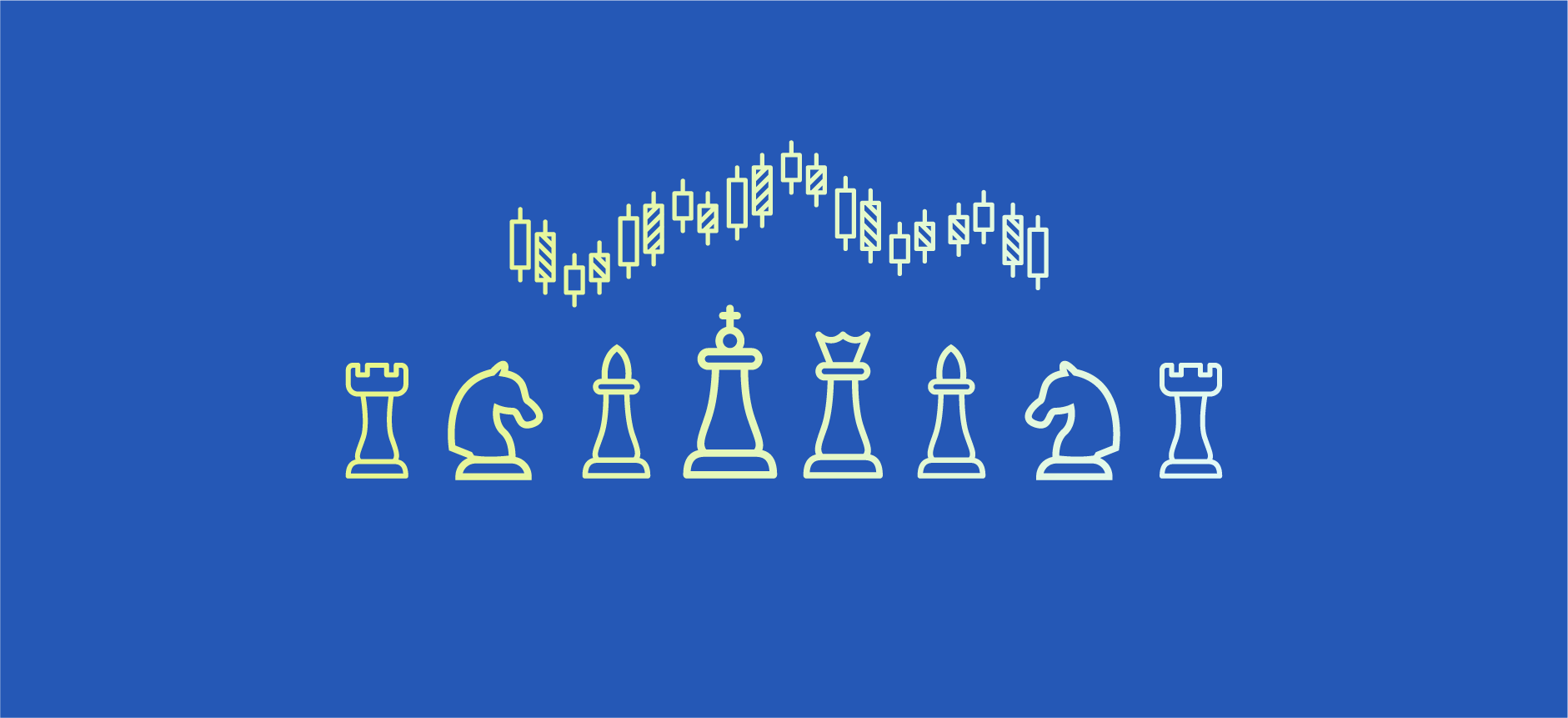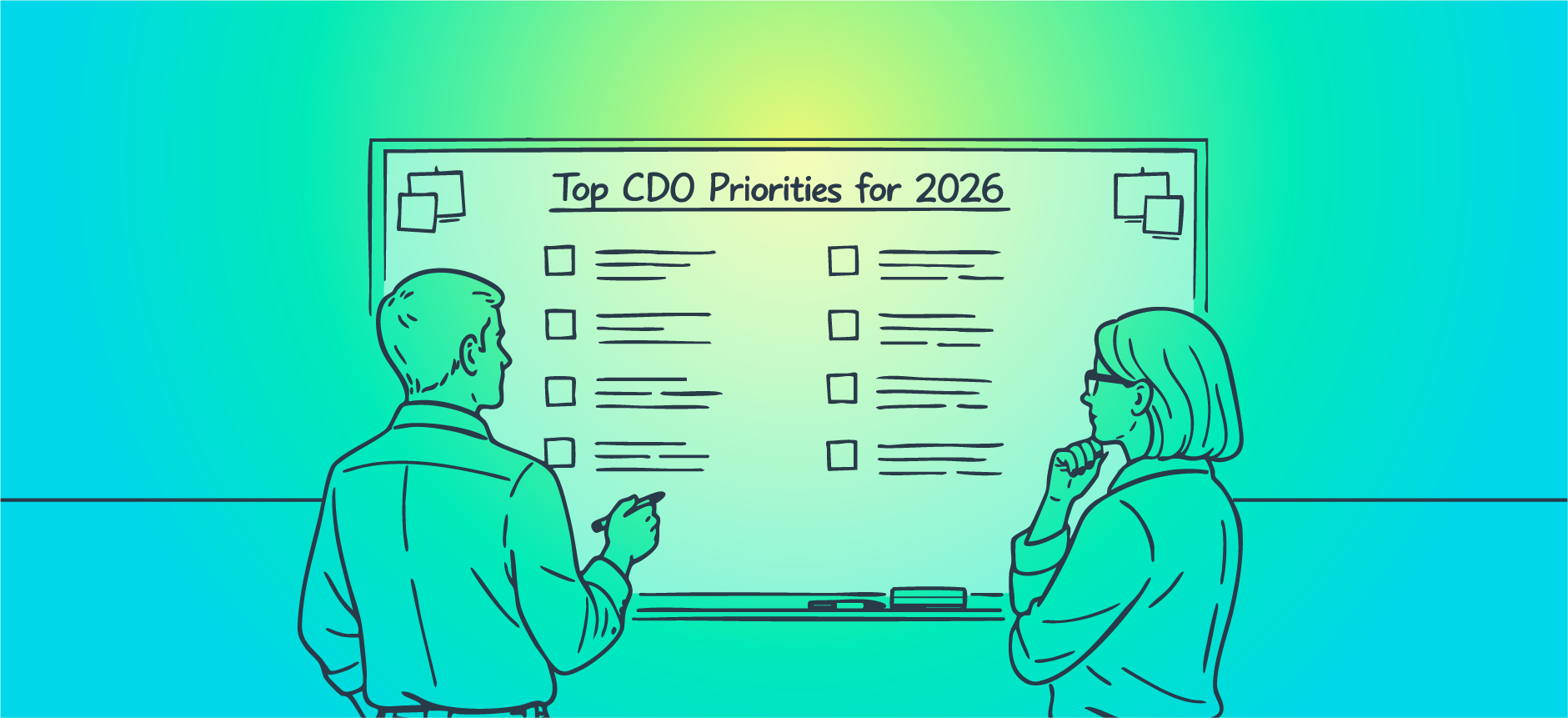The Evolving Role of the CDO: 4 Skills Every CDO Must Develop

The role of the chief data officer (CDO) is evolving. Once defined as a steward of data quality, governance, and compliance, today’s CDOs are being asked to serve in a more strategic role, one that shapes enterprise innovation, drives analytics and AI initiatives, and turns data into a strategic business asset.
But many CDOs are struggling to establish their place among the C-suite. Once viewed as technical experts only, they must now also establish themselves as strategic business partners, responsible for developing a data strategy that fuels organizational growth, improves operational efficiency, and drives competitive advantage.
The Early Days of the CDO
Prompted by the need for stronger organizational controls, the CDO role first emerged about 20 years ago, primarily focused on functions such as governance, security, and compliance. They managed data infrastructure and teams of data stewards. And they tackled persistent issues such as improving data quality, implementing master data management (MDM) solutions, and complying with regulatory mandates.
As self-service analytics and data visualization tools gained traction, some companies expanded the CDO’s responsibilities to include reporting and analytics, expanding the title to chief data and analytics officer (CDAO).
But CDOs faced an uphill battle right from the start. Vague job descriptions, unclear reporting structures, and the business’ limited understanding of the value the CDO delivered made their C-suite peers ask, “What does a chief data officer do?”
Fast forward to today, and the CDO, while no longer a new role, is still often misunderstood. According to the Data & AI Leadership Exchange’s 2025 AI & Data Leadership Executive Benchmark Survey, just over 50% of data and technology leaders feel that their organization has a good understanding of the CDO’s role. And many CDOs still experience short tenures, with more than half leaving their roles in three years or less.
On the bright side, 65% of the CDOs surveyed believe the role is heading in a positive direction, with 70% believing that the CDO will become a permanent fixture in the C-suite. But in order to remain a firm fixture on the executive team, the CDO role needs to continue to evolve, moving beyond its tactical origins to embody a strategic posture that drives meaningful impact across the business.
From Data Steward to Business Strategist
As the demand for data-informed decision-making continues to grow, the role of the CDO is more important than ever. But to become the strategic partner executive leaders want, CDOs must balance technical expertise with business acumen. Shifts in technology from on-premises solutions to cloud-based ones require a different approach to MDM strategy, while automation, AI, and self-service analytics all demand high-quality, trustworthy data that organizations can use for analytical and operational use cases.
Addressing these changing dynamics requires CDOs shift their role from stewards of data to strategic business partners. And to do so, CDOs must also develop the skills that go beyond technical know-how and incorporate business management and strategy expertise.
4 Skills Every CDO Must Develop
While technical expertise still matters, so, too, do softer skills. For CDOs to be successful as organizational dynamics evolve, they must demonstrate aptitude in the following areas when interacting with fellow business leaders:
- Collaboration: Modern CDOs must invest the time to build meaningful relationships with business stakeholders. And they must do so before they implement new solutions. By collaborating with partners across the business, CDOs can better understand the priorities of the business and the data-related challenges their peers face. By taking the time to understand business needs, CDOs can ensure the data strategy they develop—and the solutions they implement—will solve data-related pain points and enable their peers to deliver effective business outcomes.
- Communication: Strong communication skills go hand-in-hand with collaboration. And to be effective, CDOs must learn to speak the language of the business. They must evangelize their work in terms that resonate with business stakeholders and articulate how the data strategy they’ve developed will enable them to use and access data to foster innovation, deliver outstanding customer experiences, increase efficiency, and drive better business outcomes.
- Education: Establishing a data-driven culture requires everyone in the organization to become data- and AI-literate. By equipping teams with the skills and confidence to understand, interpret, and use data effectively, CDOs foster a more informed, data-driven culture that not only empowers everyone to make better, more confident decisions, but also ensures the organization can realize the full value of its investment in data and AI.
- Strategic thinking: As the organization’s lead data strategist, the CDO is responsible for developing a comprehensive data strategy that encompasses the policies, processes, roles, and responsibilities related to enterprise data. Covering everything from data governance and data architecture to data quality, integration, analytics, and security, a well-defined data strategy—aligned with business priorities and needs—ensures everyone within the organization has access to the clean, accurate, trustworthy data needed to drive effective decision-making and daily operations.
The Future of the CDO
As organizations rely on high-quality, trustworthy data to run the business, CDOs must continue to evolve their role from guardians of the data to strategic leaders driving business transformation. Not only will they need to oversee data quality and compliance, but they will also need to develop strong data strategies, implement innovative tools and technologies, and collaborate across functions to uncover new sources of value, foster a data- and AI-literate culture, and ensure data aligns with broader organizational goals. In this next phase of the CDO’s evolution, those who succeed will be the ones who blend technical acumen, business insight, and the ability to influence and lead change across the organization.
Get a free, no-obligation 30-minute demo of Tamr.
Discover how our AI-native MDM solution can help you master your data with ease!




